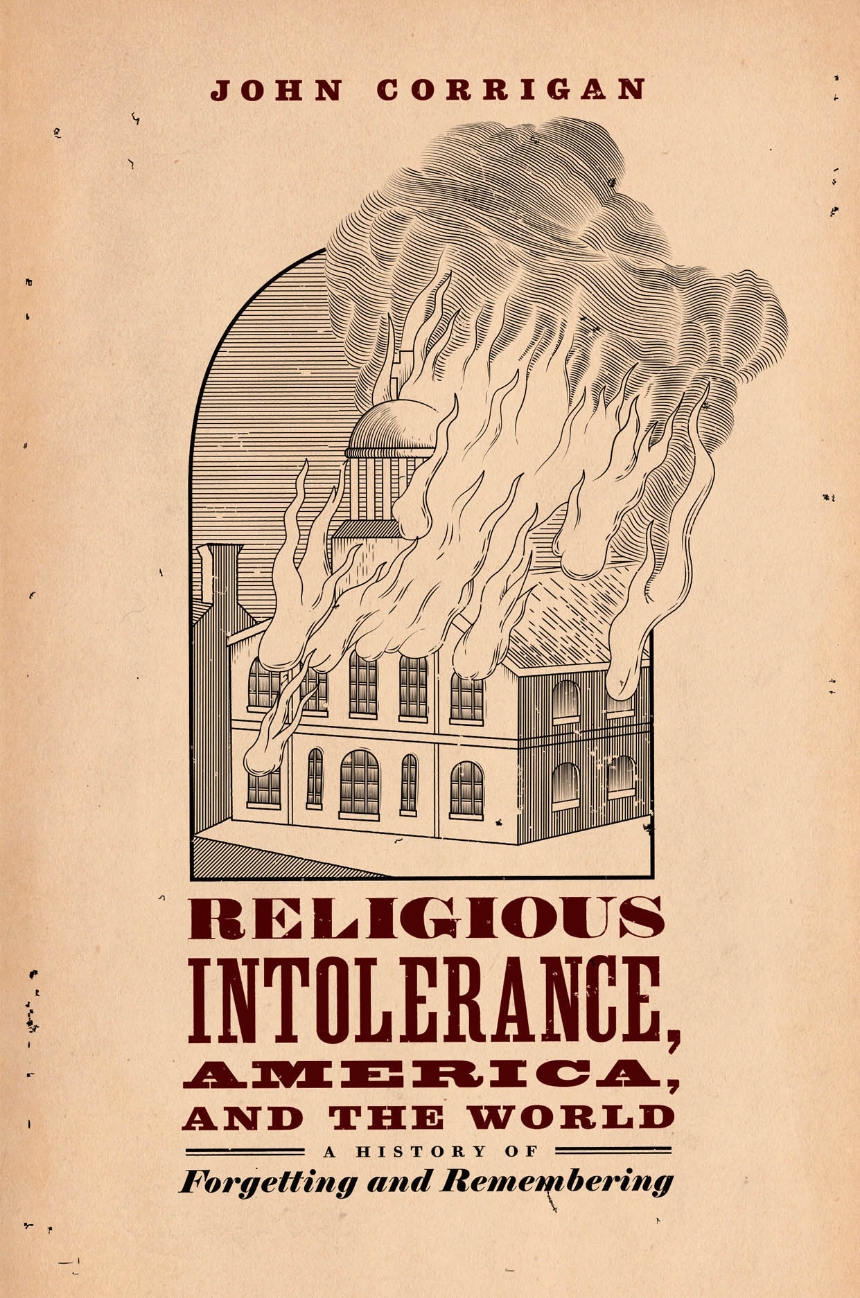Religious Intolerance, America, and the World
A History of Forgetting and Remembering
9780226313931
9780226314099
9780226831435
Religious Intolerance, America, and the World
A History of Forgetting and Remembering
As the news shows us every day, contemporary American culture and politics are rife with people who demonize their enemies by projecting their own failings and flaws onto them. But this is no recent development. Rather, as John Corrigan argues here, it’s an expression of a trauma endemic to America’s history, particularly involving our long domestic record of religious conflict and violence.
Religious Intolerance, America, and the World spans from Christian colonists’ intolerance of Native Americans and the role of religion in the new republic’s foreign-policy crises to Cold War witch hunts and the persecution complexes that entangle Christians and Muslims today. Corrigan reveals how US churches and institutions have continuously campaigned against intolerance overseas even as they’ve abetted or performed it at home. This selective condemnation of intolerance, he shows, created a legacy of foreign policy interventions promoting religious freedom and human rights that was not reflected within America’s own borders. This timely, captivating book forces America to confront its claims of exceptionalism based on religious liberty—and perhaps begin to break the grotesque cycle of projection and oppression.
Religious Intolerance, America, and the World spans from Christian colonists’ intolerance of Native Americans and the role of religion in the new republic’s foreign-policy crises to Cold War witch hunts and the persecution complexes that entangle Christians and Muslims today. Corrigan reveals how US churches and institutions have continuously campaigned against intolerance overseas even as they’ve abetted or performed it at home. This selective condemnation of intolerance, he shows, created a legacy of foreign policy interventions promoting religious freedom and human rights that was not reflected within America’s own borders. This timely, captivating book forces America to confront its claims of exceptionalism based on religious liberty—and perhaps begin to break the grotesque cycle of projection and oppression.
304 pages | 6 x 9 | © 2020
History: American History, History of Ideas
Political Science: Diplomacy, Foreign Policy, and International Relations
Religion: American Religions
Reviews
Table of Contents
Introduction. Religious Intolerance, Trauma, and the International
Chapter One. Proscribing Amalekites: Violence, Remembering, and Forgetting in Early America
Chapter Two. Projections: Antebellum Americans and the Overseas Crisis
Chapter Three. Protections: The Nineteenth Century Turns—to the South
Chapter Four. Pursuits: The Cold War and the Hunt for Intolerance
Chapter Five. Persecutions: The Importation of Intolerance in the Twenty-First Century
Index
Concord and Contention
Trauma
Identity and International Relations
International Relations and American Religious History
Trauma
Identity and International Relations
International Relations and American Religious History
Chapter One. Proscribing Amalekites: Violence, Remembering, and Forgetting in Early America
Colonists, Indians, and War
Memory and Intolerance
Trauma and Identity
The Amalekites of the Old Testament
Amalek in America
Amalek and the War against Native Americans
Blotting Out, Remembering, and Forgetting
Catholics and Mormons as Amalekites
The Instability of Identity
Memory and Intolerance
Trauma and Identity
The Amalekites of the Old Testament
Amalek in America
Amalek and the War against Native Americans
Blotting Out, Remembering, and Forgetting
Catholics and Mormons as Amalekites
The Instability of Identity
Chapter Two. Projections: Antebellum Americans and the Overseas Crisis
Triumph of Religious Liberty
Sectarian Secrecy
Conspiracies in Boston and Philadelphia
Intolerance in Foreign Lands
Sectarian Secrecy
Conspiracies in Boston and Philadelphia
Intolerance in Foreign Lands
The Problem Overseas
Fear of Global Catholicism
The Aftermaths of Boston and Philadelphia
Fear of Global Catholicism
The Aftermaths of Boston and Philadelphia
Making Foreign Policy
Toward a New Era
Intervention
Intervention
Chapter Three. Protections: The Nineteenth Century Turns—to the South
The Foreign Spaces of Americans
Foreign Time and the Puritan Specter
Forays into Internationalism
Rescuing the Twin
Civil and Religious Liberty in South America
U.S. Policy in South America
Wilsonianism
The New Danger
Foreign Time and the Puritan Specter
Forays into Internationalism
Rescuing the Twin
Civil and Religious Liberty in South America
U.S. Policy in South America
Wilsonianism
The New Danger
Chapter Four. Pursuits: The Cold War and the Hunt for Intolerance
A World of Protestants
Anti-Communism
Intolerance
Anti-Communism
Intolerance
Communists and Cults
Anti-Catholicism
African American Churches
Anti-Catholicism
African American Churches
Human Rights and Religious Persecution
Religious Freedom Legislation
Religious Freedom Legislation
Chapter Five. Persecutions: The Importation of Intolerance in the Twenty-First Century
White American Christians
Identifying with the Persecuted
Stages of Persecution
Religious Intolerance and Post-Christian America
Acknowledgments
Notes
Identifying with the Persecuted
Stages of Persecution
Religious Intolerance and Post-Christian America
Acknowledgments
Notes
Index
